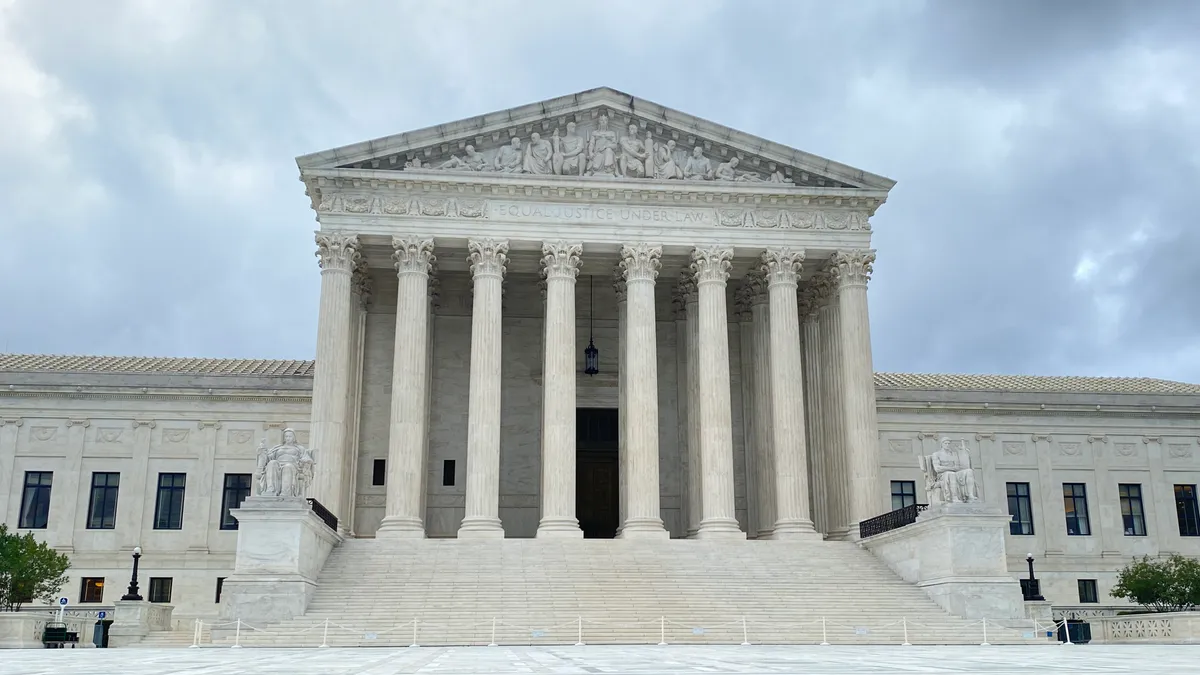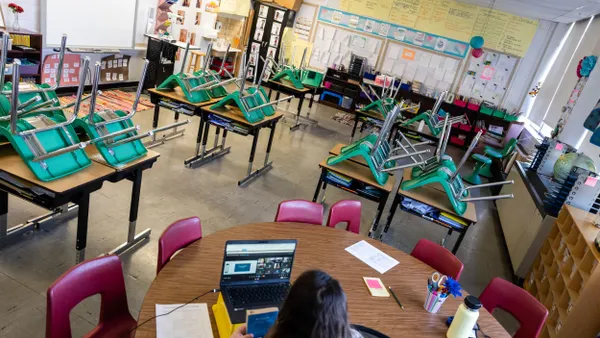Dive Brief:
-
The U.S. Supreme Court has agreed to hear an Individuals with Disabilities Education Act case that could impact how parents of students with disabilities and their public school districts approach the dispute resolution and settlement process.
-
In Perez v. Sturgis Public Schools, judges will consider whether individuals who have entered into a settlement resolving their IDEA claims must further exhaust the IDEA’s administrative process before filing a lawsuit under the Americans with Disabilities Act.
-
The case also addresses whether the requirement to exhaust IDEA’s administrative remedies before filing suit under IDEA applies to an Americans with Disabilities Act suit seeking only money damages that are not available under IDEA.
Dive Insight:
The case was originally filed by the parents of Miguel Luna Perez, a deaf student who attended Michigan's Sturgis Public School District. According to the parents' Supreme Court petition, the district assigned Perez to an unqualified classroom aide who was not trained to work with deaf students and did not know sign language. Perez's parents say they were misled by the district about the aide’s qualifications and that he would earn a high school diploma after 12th grade.
"And in later years of Miguel’s education, the aide would abandon him for hours a day—so he had no way to communicate with anyone," the parents' court documents claim. "During the same period, Sturgis also awarded Miguel grades that did not in any way reflect his mastery of the curriculum."
The district eventually awarded Perez a certificate of completion rather than a diploma.
After filing a due process complaint alleging violations of laws including ADA and IDEA, the parents and district agreed to a settlement where Perez received full relief under his IDEA claim. The ADA claim, along with others, was dismissed.
"This case — if the court of appeals rule is upheld — is going to destroy the possibility of settlement agreement in special ed litigation," said Pete Wright, a special education attorney. Wright also provides special education law and advocacy training for parents, educators and others.
The Supreme Court's acceptance of the case comes after a lawsuit filed in late September against the Virginia Department of Education and Fairfax County Public Schools, one of the largest districts in the nation. That lawsuit alleges special education due process hearings in the state favor school systems over parents of children with disabilities.
Over the last 20 years, the lawsuit claimed, Virginia parents have won less than 2% of 1,400 due process cases.
That lawsuit and the Supreme Court case are the most recent high-profile examples of special education litigation brought by parents against school districts. Most special education litigation is initiated by parents, although school districts can and do sue parents over IDEA-related disputes, according to special education experts.
The outcome of the Supreme Court case could impact district-parent relationships in the context of individualized education program complaints and due process hearings, depending on which way the decision swings, said Wright.
The outcome of this case could also complicate the expected increase in special education litigation post-pandemic, added Wright.
"Is it in the interest of school districts and parents to come to an agreement? Yes, of course," Wright said. However, this case could change whether additional administrative processes need to be exhausted even after parties have reached a settlement resolving IDEA claims before filing for damages.
Wright said the case is a confusing one. "How can you exhaust and litigate if you settled?" Wright said.
Indeed, the majority on a divided panel of the court of appeals affirmed that because parents accepted the district's settlement offer, they had to dismiss [the IDEA] complaint, which meant that "[petitioner] did not exhaust the IDEA’s procedures” and “could never file the IDEA claim or any other corresponding statutory claim in court."
Previous decisions on similar cases have had mixed outcomes, and it's too early to tell which direction the court may sway in this time, Wright said.
However, recent similar IDEA cases have been decided in favor of students, Wright said. "If past behavior is indicative of future performance, the last two [related] Supreme Court cases were unanimous pro-child decisions," Wright said. "So the track record is going good."






 Dive Awards
Dive Awards







